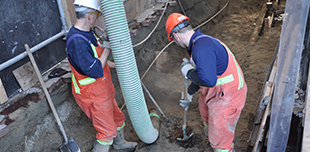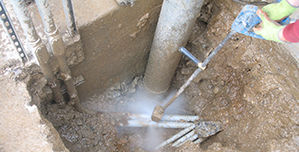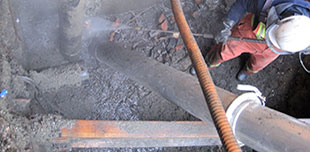Storm drains and catch basins are essential components of drainage systems that prevent water runoff from causing millions of dollars in damage to homes in BC each year. Clogged catch basins can cause disastrous flooding of surrounding homes. Regular cleaning of catch basins is essential for proper rainwater runoff.
Every year, needless flooding occurs because catch basins are not cleaned or because they were misused. Storm drains are often misused by people who have no idea that dumping fallen leaves or grass clippings into these drains will do any harm. Dry waste like leaves and grass sits in the drains and gradually gets compacted by gravity and gets sticky as moisture is absorbed.
 The moist waste will stick to the walls of the drain in the same way that grease will stick to the walls of your arteries. Dirt also helps the other debris stick as it is a magnet for moisture. The dirt mixes with grass clippings and, literally, it makes clay in the same way that ancient engineers used it to make bricks. Without applying huge amounts of water, it is impossible to break this dirt and grass apart.
The moist waste will stick to the walls of the drain in the same way that grease will stick to the walls of your arteries. Dirt also helps the other debris stick as it is a magnet for moisture. The dirt mixes with grass clippings and, literally, it makes clay in the same way that ancient engineers used it to make bricks. Without applying huge amounts of water, it is impossible to break this dirt and grass apart.
As the waste accumulates on the walls and floor of the catch basin, the capacity for the basin to take away drain water is reduced and restricted. Routine rainfall can no longer be drained away quickly enough and water backs up from the drain. Flooding then results and will continue to happen until the drain is professionally cleaned.
Storm drains can also get clogged with garbage. While it may be tempting to sweep that paper and cardboard waste left down the storm drain, the consequences will be disastrous later. It is also not advisable to sweep dirt and dust into storm drains either, as the dirt will bond with water that comes through and start the process of accumulation and constriction of flow.









